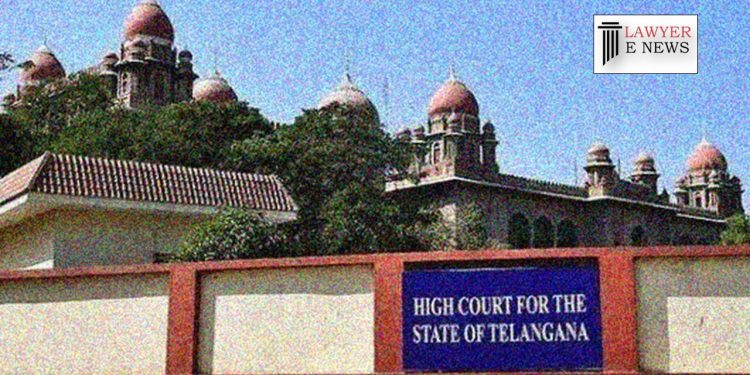-
by Admin
15 February 2026 2:16 AM



In a significant ruling, the Telangana High Court has pronounced a judgment that navigates the complex interplay between customers and traffickers within the ambit of the Immoral Traffic (Prevention) Act, 1956, and the Indian Penal Code. The bench, presided over by the Honourable Smt. Justice K. Sujana, meticulously dissected the legal framework surrounding the allegations against Bodempudi Leela Krishna Prasad, accused of being involved in a prostitution ring.
The main legal contention revolved around whether a mere customer in an alleged prostitution ring can be absolved of responsibilities under Section 370(A)(2) of the IPC, which deals with exploitation of a trafficked person, and Sections 3 to 5 of the Immoral Traffic (Prevention) Act concerning the operation and management of a brothel.
On the night of July 19, 2022, police raided a property in Hyderabad, detaining multiple individuals including the petitioner, accused of patronizing a brothel. The defense argued that the petitioner, as a customer, should not be held liable under the specified sections, drawing on precedents where charges against customers were quashed.
Justice Sujana’s judgment elaborated on the distinct legal interpretations and applicability of the laws in question. Citing previous judgments, the Court emphasized the necessity of proving that a customer knew or should have known of the trafficked status of the individuals involved to uphold charges under Section 370(A)(2). "The consent of the victim is immaterial in determination of the offence of trafficking," noted Justice Sujana, underlining the gravity of the offence.
Distinction in Law: The Court clarified that the role of a customer does not inherently exclude liability for engaging with trafficked individuals. "In the absence of any material that the women are trafficked for the purpose of engaging for sexual exploitation, the offence under Section 370 (A)(2) I.P.C. will not attract against the customers," the judgment read. However, this does not mean automatic exemption for all customers, as each case requires thorough examination of the customer's awareness of the trafficking.
Proceedings Under the Immoral Traffic Act: The proceedings under Sections 3 to 5 of the Immoral Traffic (Prevention) Act were quashed, acknowledging that mere presence at the scene does not equate to managing or operating a brothel.
Continuation Under IPC: Despite the quashing of some charges, the proceedings under Section 370(A)(2) of the IPC are set to continue, reflecting a nuanced interpretation of customer involvement in trafficking scenarios.
Conclusion of the Judgment: While offering relief on some fronts by quashing charges under the Immoral Traffic (Prevention) Act, the Court has decided to continue the examination of the petitioner’s role under Section 370(A)(2) of the IPC. This decision underscores the judicial effort to differentiate between various participants in such illegal activities, holding individuals accountable based on their level of involvement and awareness.
Date of Decision: May 3, 2024
Bodempudi Leela Krishna Prasad vs. The State of Telangana
